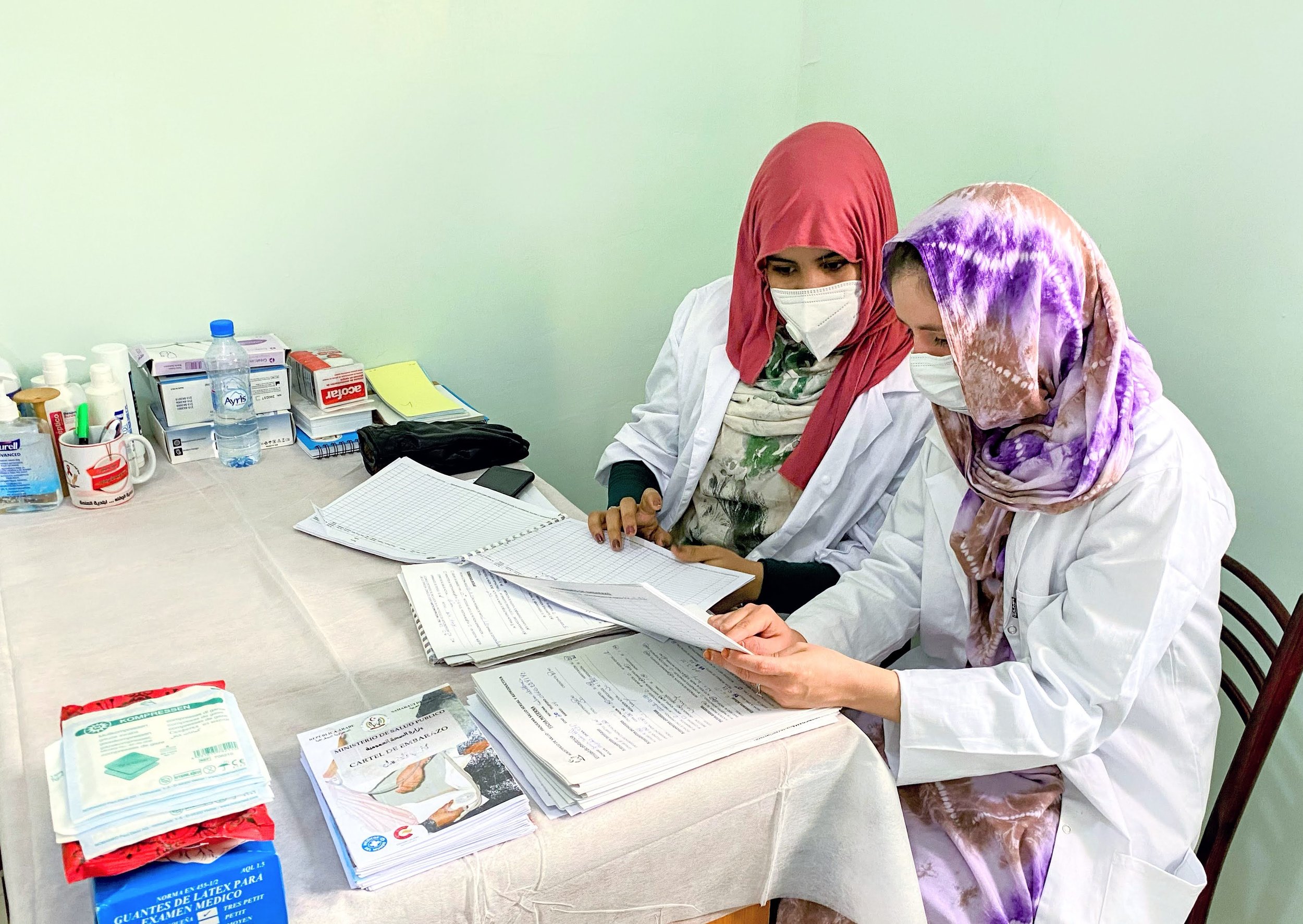Introducing Sahara Partners’ Community Health Programs
In 2018, when several members of the Community Health Programs (CHP) team took a survey trip to the Saharawi refugee resettlement camps, a vision began forming of coming alongside local public healthcare workers and empowering them to better serve their community. Leaders from the Ministry of Public Health shared with us about the needs of educating the public in the areas of family wellness, first aid and basic safety, malnutrition, and chronic diseases. In the fall of 2021, our dream became a reality as Sahara Partners officially started partnering with the local health clinics in the camp where we serve.
By the recommendation of the regional health director, the CHP team began with a period of familiarization with the local community health clinics and the programs offered there. We started in the clinic located in the largest of the three districts where we are based and later branched out into the other two districts.
As members of the CHP team began regularly attending clinics’ programs, observing the services offered, and building relationships with the healthcare professionals and patients, a better understanding of the scope of programming offered and the most pressing needs of the clinics emerged. The most robust of the programs offered is the one addressing early childcare intervention. This program concentrations on nutrition, growth tracking, food supplement distribution, and vaccinations. The second largest program available at the clinics is dedicated to the treatment and tracking of people with chronic diseases such as high blood pressure, diabetes, and asthma. The final program is geared toward pregnant and breastfeeding women and offers care, tracking, and training for women and babies during gestation and into the early months of life.
After the period of familiarization with scope of the clinics’ work, we initially began training the healthcare providers in the area of childhood health: addressing common diseases found in youth and teaching first aid and safety as well as fire safety and burn treatment. We are also educated staff about the signs and symptoms of chronic diseases and how to manage these diseases with diet and exercise. The goal of each of these trainings is that healthcare professionals will pass on the knowledge to their patients, families, and communities. One of the female members of our CHP team is also working with the local midwife to assist with the services offered to pregnant and breastfeeding women. She has developed tailored programs that address some of the most common health concerns that accompany pregnancy in the refugee camps and has begun making home visits to patients with the midwife as well as on her own.
Our CHP staff have begun designing posters and flyers for the clinics and local hospital. These posters and flyers address many of the health issues that have been tackled during our trainings at the clinics. Recently, the Regional Director of Health also asked one of the CHP team to design trainings for nurses at the local community hospital on IV placement and the proper usage of the heart monitor and defibrillator.
Working with the local clinics has been a joy for our CHP staff members. As we continue to listen and learn from locals, we look forward to branching into new areas of healthcare service and designing new and innovative ways to tackle common health concerns in the community.




